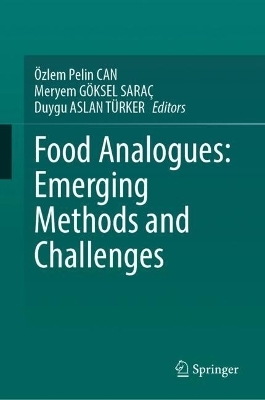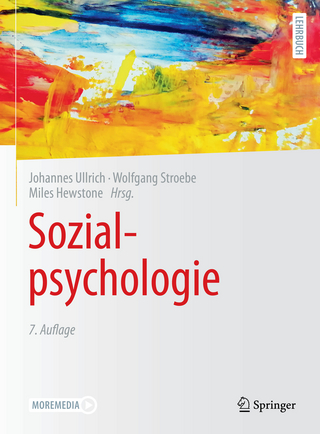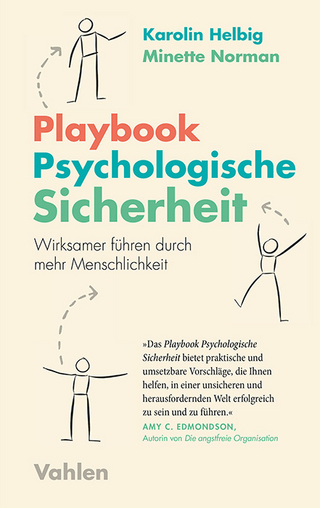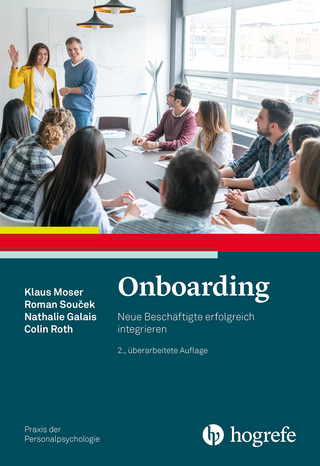
Food Analogues: Emerging Methods and Challenges
Springer International Publishing (Verlag)
978-3-031-69871-2 (ISBN)
As vegetarian and vegan diets have taken hold across the Western world in recent years, the food industry has in turn seen a burgeoning demand for plant-based substitutes, known as analogues. Consumers are hungry for a product that aligns with their values, meets their nutritional needs, and also delivers on its promise of simulating the qualities of its target food item, be that beef, chicken, egg or dairy. Researchers are thus continually working to more closely approximate not only the taste but also the aesthetic, textural and rheological properties of the food item they are imitating. Meanwhile, questions about the nutritional content and environmental impact of food analogues are also of major interest for conscious consumers.
While existing volumes have covered specific analogues such as meat or dairy, Food Analogues: Emerging Methods and Challenges will be the first to offer an authoritative overview of all food analogues and comprehensively assess the current and future state of the industry. This text covers both the fundamental processes of textural manipulation and sensory evaluation as well as the microbiological and regulatory aspects of these plant-based substitutes. Looking towards the future of food analogue technology, it will also discuss promising new approaches such as the use of 3D printing and edible insects in analogue production. This book will be of value to researchers, manufacturers, regulators, nutritionists, and even consumers themselves, seeking to make more informed decisions about their diets.
Prof. Dr. Özlem Pelin Can. She received her undergraduate degree from Firat University Faculty of Veterinary Medicine and her doctorate degree from Firat University Faculty of Veterinary Medicine, Department of Food Hygiene and Technology. She entered academic life in 2001. She worked as a research assistant at Firat University, Faculty of Veterinary Medicine, Department of Food Hygiene and Technology, and then as a lecturer at Sivas Cumhuriyet University, Department of Food Engineering. Since 2022, she has been a faculty member at Sivas Cumhuriyet University, Faculty of Veterinary Medicine, Department of Food Hygiene and Technology. She teaches courses on food hygiene, food microbiology, food additives, meat technology and dairy technology. Dr. Can published articles in internationally cited journals and presented papers at national and international congresses and conferences. She works on food microbiology, product development, animal foods and carries out projects with industrial organizations on the development and improvement of production systems. She has been working as the Director of the Science Institute of Sivas Cumhuriyet University between 2017-2022 and as the Director of the Institute of Health Sciences of Sivas Cumhuriyet University since 2022.
Assoc. Prof. Dr. Meryem GÖKSEL SARAÇ graduated from Erciyes University with a bachelor's degree in food engineering and completed her master's and doctoral studies at the same university. Since 2012, she has worked in the Food Technology programme at Sivas Cumhuriyet University and continues to work in the Department of Cookery. She has been working on food science, especially in the fields of food rheology and texture, food additives, food chemistry, and research and development. She is also working on sensory evaluations, interfacial rheology and food waste utilization and recovery. She has articles, book chapters and projects in the related field. She also serves as the deputy director of Sivas Cumhuriyet University Food Studies Application and Research Center. Göksel Saraç continues his R&D studies at the research center.
Dr. Duygu Aslan Türker is an accomplished food engineer and research assistant at the Department of Food Engineering, Erciyes University, Kayseri, Turkey. She holds a B.Sc. (2012) and M.Sc. (2015) in Food Engineering from Erciyes University, where she is also completed her Ph.D. since 2015. Her research focuses on food rheology, chemistry, and the development of milk and dairy products, contributing significantly to the field through her extensive studies on the rheological and textural properties of food. Since 2014, Aslan Türker has been a member of her department, engaging in various research projects. She has authored numerous publications in prestigious journals, including works on gluten-free cake formulations and innovative extraction techniques for anthocyanins from black carrots. Her research extends to the interfacial properties of alternative proteins, and the stability and sensory attributes of dairy products, showcasing her diverse expertise. Aslan Türker's contributions to the field have been recognized with several awards and scholarships, including the TÜBITAK scholarships for her Ph.D. and post-graduate studies. She has also received certificates of honor and appreciation from Erciyes University.
Meat analogs: Prospects and challenges.- Milk and Dairy Products Analogues.- Egg Analogues.- The production, ingredients and resulting sensory properties of plant-based chicken analogues.- Proteins for Analogue Foods.- Vegetable Oils for Analogue Food Production.- Spirulina: Exploring Its Promising Role in Food Industry and Overcoming Challenges as a Food Analogue.- Edible marine biological materials in food analogues.- Edible insects in Food analogues.- Hybrid meat products: using plant, fungi, and insect sources for flexitarian diets - technological, nutritional and sensory insights.- Rheological and textural properties of food analogues.- Microbiology aspects of food analogues.- Application of Multi-Criteria Decision Making Techniques in Sensory Evaluation of Food Analogue.- 3D Printing for The Production of Food Analogues.- Packaging aspects of food analogues.- Regulatory aspects of food analogues in food sciences Food analogues in the European Union: a legal perspective.- Environmental Impacts/Benefits/Risk Of Food Analogues.- The future of meat analogues.
| Erscheinungsdatum | 03.12.2024 |
|---|---|
| Zusatzinfo | X, 569 p. 49 illus., 45 illus. in color. |
| Verlagsort | Cham |
| Sprache | englisch |
| Maße | 155 x 235 mm |
| Themenwelt | Geisteswissenschaften ► Psychologie ► Arbeits- und Organisationspsychologie |
| Naturwissenschaften ► Biologie ► Mikrobiologie / Immunologie | |
| Technik ► Lebensmitteltechnologie | |
| Schlagworte | 3D food printing • Consumer Preferences for Food Analogues • Edible Insects in Food Analogues • Egg and Dairy Subtitutes • plant-based meats • Sensory Analysis • Sensory Analysis of Food Analogues |
| ISBN-10 | 3-031-69871-1 / 3031698711 |
| ISBN-13 | 978-3-031-69871-2 / 9783031698712 |
| Zustand | Neuware |
| Informationen gemäß Produktsicherheitsverordnung (GPSR) | |
| Haben Sie eine Frage zum Produkt? |
aus dem Bereich


